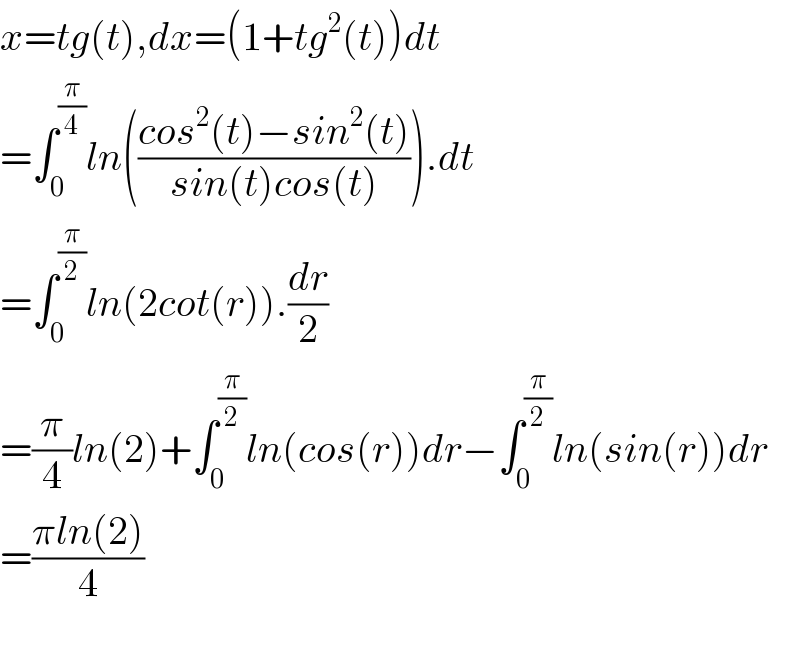
Question and Answers Forum
Question Number 109342 by 150505R last updated on 22/Aug/20

Commented by maths mind last updated on 23/Aug/20

Commented by mathdave last updated on 23/Aug/20

Commented by mathdave last updated on 23/Aug/20

| ||
Question and Answers Forum | ||
Question Number 109342 by 150505R last updated on 22/Aug/20 | ||
 | ||
Commented by maths mind last updated on 23/Aug/20 | ||
 | ||
Commented by mathdave last updated on 23/Aug/20 | ||
 | ||
Commented by mathdave last updated on 23/Aug/20 | ||
 | ||